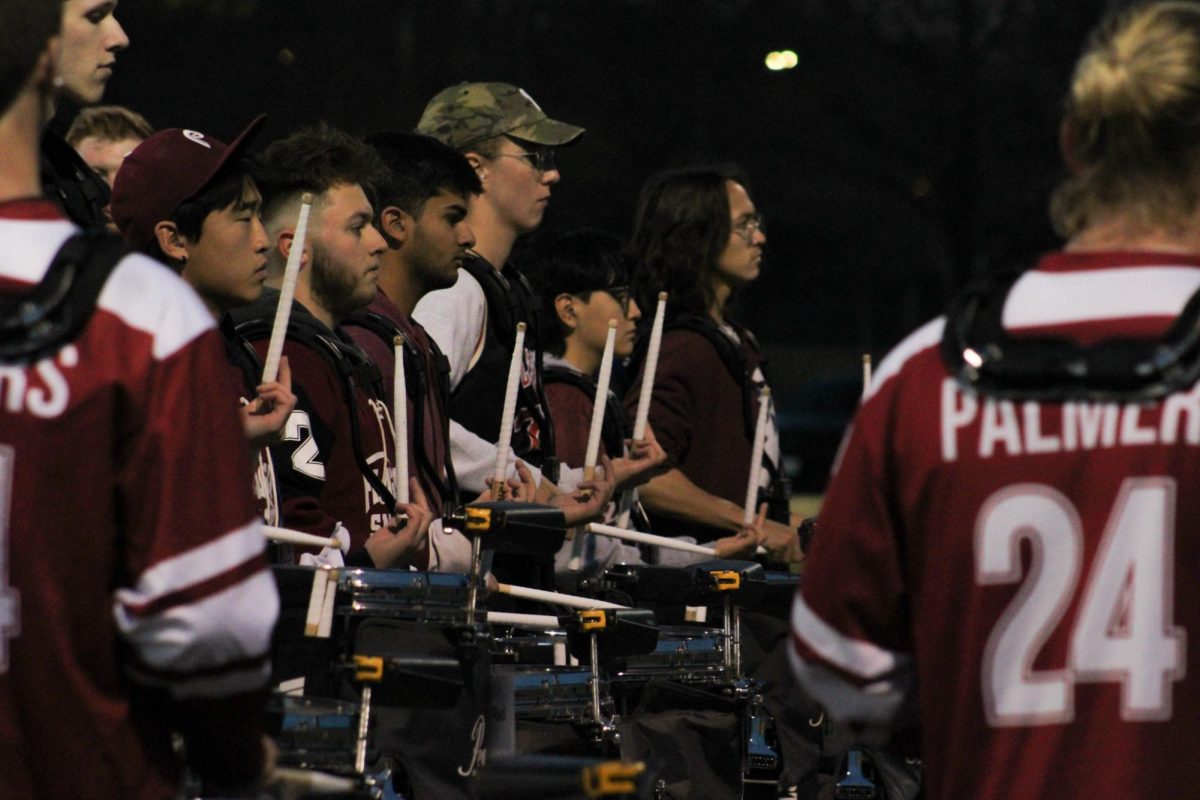
When getting lost in the astounding discography of Hoboken, N.J.’s great Yo La Tengo, it can be easy to forget that the band – comprised of guitarist/vocalist Ira Kaplan, drummer/vocalist Georgia Hubley and bassist James McNew – are first and foremost music historians.
On its 1997 album “I Can Hear the Heart Beating As One,” and its 2000 album “And Then Nothing Turned Itself Inside-Out” alone, it re-invented songs by The Beach Boys, pop singer Anita Bryant and disco legend George McCrae. This is to say nothing of 2006’s “Yo La Tengo Is Murdering the Classics,” a 31 song, 76-minute for-charity album of nothing but on-the-spot, unrehearsed covers.
As well-developed as Yo La Tengo’s songwriting chops are, after thirty years and a remarkable run of records, it is a band that lives for jamming and re-interpretation. So, even though it might be easy to look at “Stuff Like That There,” which is comprised of 9 covers, 3 re-worked songs from the band’s massive back catalog and 2 new tracks, as a bit lazy, it is perfectly natural for the band.
Perhaps inevitably, there is nothing titanic on this record; nothing approaching career highlights such as “Night Falls On Hoboken” and “Big Day Coming.” But, “Stuff Like That There,” released on Aug. 28, is never a burden, and plays as pleasantly as a summer breeze. Listening to it feels like returning for the umpteenth time to a childhood vacation spot. While there may not be much around that you haven’t already experienced or seen before, there is a warm familiarity to its surroundings that may take you into a different, less pre-occupied state of mind.
As one would expect, with Yo La Tengo’s aforementioned encyclopedic knowledge of pop music, the covers range from virtual standards to impossibly obscure rarities. But they execute them all, regardless of popularity, with the same quiet mastery. With the amplifiers turned way down, Kaplan mainly cedes the spotlight to Hubley, who absolutely nails every bit of sorrow and despair in the Hank Williams classic “I’m So Lonesome I Could Cry,” while capturing all of the simple playfulness of the Cure’s grandiose pop masterpiece “Friday I’m In Love.”
Even with Hubley’s fairly limited range as a singer, the ebullient hooks of The Lovin’ Spoonful’s definitively 60′s track, “Butchie’s Tune,” are no trouble for her, as she makes the song as doe-eyed as it was fifty years ago.
“I Can Feel the Ice Melting,” a track by George Clinton’s pre Parliament-Funkadelic doo-wop group the Parliaments, gets a treatment that is both loving and lovely, while “Naples,” a song by Kentucky indie band Antietam, receives a hypnotically gorgeous makeover that serves as another standout for Hubley.
But it’s the cover that hits closest to home for the band that stands out as the best re-interpretation on “Stuff Like That There.” “Automatic Doom,” a song by James McNew’s pre-Yo La Tengo Hoboken band Special Pillow, is re-worked flawlessly. Breezy and absolutely effortless, Yo La Tengo’s version features one of the most pristine and touching duets Kaplan and Hubley have recorded in their many years as bandmates. Though their voices both show a little age, the little wavers in their harmonizing just gives the song more poignant humanity.
As for the new material, Kaplan’s “Rickety” is fairly nondescript. But, his “Awhileaway” is one of the album’s highlights. With delicate, jazzy chording and his always-soothing vocals, Kaplan crafts a beauty that you can, tongue away from cheek, throw into the “soft rock” genre.
Surprisingly enough though, the re-workings contain “Stuff Like That There”‘s greatest treasure. It’s the band’s acoustic take on their 1997 masterpiece “Deeper Into Movies,” perhaps the most risky track on the record, that proves to be an absolute stunner. Over pulsating acoustics and Hubley’s ethereal vocals, Kaplan simply puts on a masterclass of spacey, but minimal guitar leads.
The deeply evocative notes Kaplan sprays all over the track are a powerful reminder of what makes Yo La Tengo such a special band, one that continues to pleasantly surprise, even when returning to certain formulae after thirty years.
Jackson Maxwell can be reached at [email protected].












